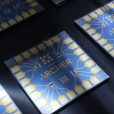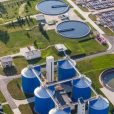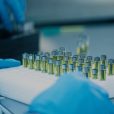With the average person’s life expectancy rising, Alzheimer’s disease is emerging as a major health concern which can have devastating effects on an individual’s cognitive function. It leads to progressive loss of brain cells which later leads to loss of memory and has become a global menace, costing the world over US$818 billion in treatment and care. But in an Australian medical breakthrough, NeuroScientific Biopharmaceuticals (ASX: NSB) recently announced major advancements to increase a cell’s ability to regenerate, providing new ways to treat Alzheimer’s, prompting a major market spike of 189% in their company’s share price on July 2 when the announcement was made.
NSB’s EmtinB breakthrough could potentially go a long way towards treating more than 48 million people in the world who suffer from dementia, where approximately 70% of dementia patients present with Alzheimer’s symptoms. In addition, the global economic burden for the disease adds up to US$818 billion when factoring the requirements to treat and care for individuals suffering from Alzheimer’s.
Moreover, 5% of the global population lose some form of vision due to damaged optic nerves with 60 million people suffering from glaucoma where EmtinB’s ability to improve neurite growth and active connections between nerve cells could open up avenues for NSB’s treatment pathways.
Treating Alzheimer’s disease has proved to be very difficult in the past with drugs targeting the beta-amyloid protein all failing in the late clinical trials stage. During the year 2018, Johnson and Johnson, Eli Lilly, Merck, Elisia/Biogen and Eli Lilly all halted their clinical trials, after decades of research and investments of billions of dollars. Due to the failure of these clinical trials, there is strong interest in alternative approaches with neuroprotection being one area of medical research being closely monitored.
“These results far exceeded our expectations for efficacy in every test in the model. We could finally have a disease modifying therapy for Alzheimer’s,” said Matthew Liddelow, CEO and Managing Director of Neuroscientific Biopharmaceuticals.
Putting the new drug to test, EmtinB recorded the greatest ever improvement in neurite growth and also an increased number of active connections between nerve cells in a spinal cord injury model test.
Treatment with EmtinB produced the longest axons ever seen, with increments in the axons length used to help measure the ability of nerve cells to regenerate. EmtinB nerve regeneration stimulation doubled that of Copaxone, the leading drug for Multiple Sclerosis, which was able to record annual sales of $4 billion.
Pre-clinical and human trials are set to begin this quarter so if results confirm the company’s expected findings, NeuroScientific Biopharmaceuticals could potentially solve one of the world’s major health problems.
NeuroScientific Biopharmaceuticals trades on the ASX under the code: ‘NSB’













Leave a Comment
You must be logged in to post a comment.